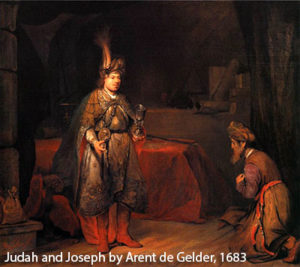Therefore, brothers, since we have confidence to enter the holy places by the blood of Jesus, by the new and living way that he opened for us through the curtain, that is, through his flesh, and since we have a great priest over the house of God, let us draw near with a true heart in full assurance of faith, with our hearts sprinkled clean from an evil conscience and our bodies washed with pure water. Let us hold fast the confession of our hope without wavering, for he who promised is faithful. And let us consider how to stir up one another to love and good works, not neglecting to meet together, as is the habit of some, but encouraging one another, and all the more as you see the Day drawing near. –Hebrews 10:19-25
If you’ve stuck with the many points and arguments and exhortations and themes the writer has covered in the first 9+ chapters of Hebrews, then you may find some satisfaction that he has arrived at last to an application or necessary conclusion. We find at the beginning of the passage above “therefore,” which tips us off. What is the application of it all? “Let us draw near; let us hold fast the confession; let us consider how to stir up…not neglecting to meet together, but encouraging one another.”
What is this? Is this “drawing near” in “the holy places” something private that we can just do in our hearts? Not at all! This is a call to public worship, and not just any worship or any old state of mind. Far too often I hear American Christians say something like, “I’m a Christian but I’m not a member of any church,” or, “I’m spiritual but not religious,” which in Oklahoma often means, “I’m a Christian, but I don’t go to church.” There’s no place for that, declares Hebrews. Every Christian requires the encouragement of other Christians. Christian worship without other Christians is less than it should be and robs other Christians of some of the provision of God.
Let us consider how to stir up one another to love and good works, not neglecting to meet together, as is the habit of some, but encouraging one another, and all the more as you see the Day drawing near. Here’s the imperative of all the truth that has preceded it. The original audience was thinking of going back to Judaism to help relieve some of the Roman persecution. I doubt that meant that they thought Jesus was a farce, but some were in the habit of “neglecting to meet together.” It was at least easier not to call attention to themselves by meeting together. But this is what Christians do; that’s the church: it meets together for encouragement to love and good works. And all the more so because we are drawing closer to the Great Day when, with Jesus’ reappearance (9:28), God will complete his work of New Creation (12:26-28). And that’s the gospel.
Come hear it preached and enacted in the Supper this Sunday!
